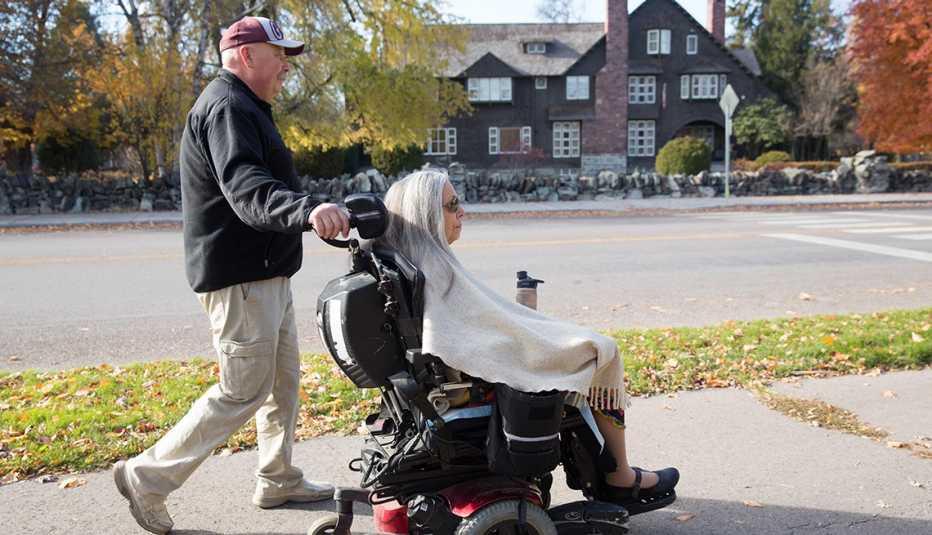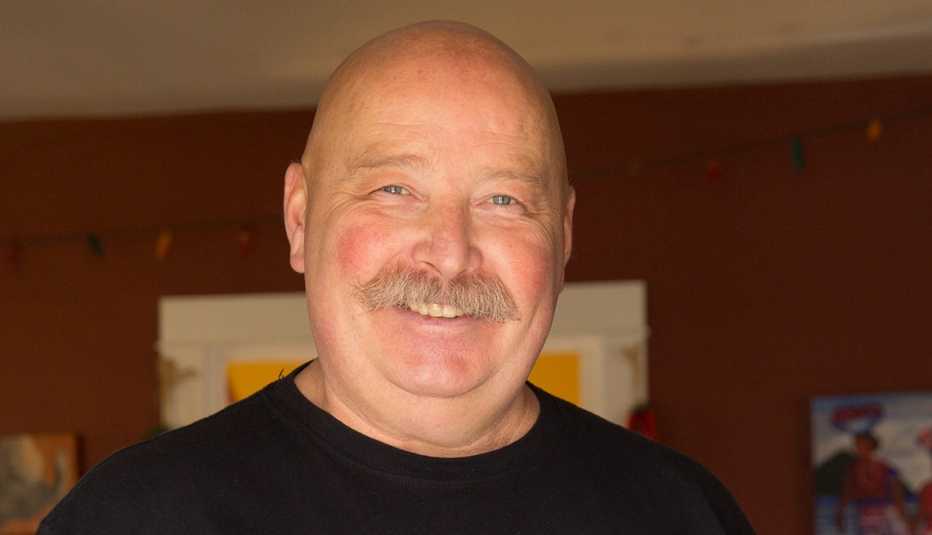AARP Hearing Center


Glenn Ridenour, 58, of Kalispell, Mont., is a caregiver for his wife, Karen, 69, who was diagnosed with multiple sclerosis in 2002. Because he currently works full time as a service technician for an oxygen therapy company, Glenn sets things up at home so his wife can fend for herself while he’s at work.
"Sometimes she calls me her saint or savior, but I think that’s going too far."


The last time Karen was standing on her own with the help of a walker was in 2008. Now she’s in some kind of wheelchair all the time. I’m the only one who can move her in and out of the wheelchair, and there’s no one else she’d want to move her. It’s pretty personal. I bathe and dress her before I go to work. I do all the cooking and take care of the house and yard. I’m a very good cook, and we have a side business where we make and sell hot sauces, salsas, marinades and jellies.


AARP Membership— $12 for your first year when you sign up for Automatic Renewal
Get instant access to members-only products and hundreds of discounts, a free second membership, and a subscription to AARP the Magazine.


While I’m at work, she can manage by herself during the day. She has one hand that works, so if I leave food for her in the fridge, she can feed herself during the day. We have a friend who’s a caregiver come in twice a week. We’ve done a lot of remodeling to the house so Karen can go in and out the front door in her wheelchair. She can take herself to the doctor or physical therapy if a free transportation service picks her up. There’s a historic mansion next door, and we’re only six blocks to Main Street in our little town, so she has places to go. There are a lot of people out walking their dogs, and my wife loves dogs, so she carries treats with her.


Being a caregiver is a struggle, physically and mentally. I’m getting older, and I have my own aches and pains. At night, sometimes I lie awake and think about what’s going to come next, because MS is one of those diseases where you just don’t know. I want to be able to give her whatever quality of life she can have. Sometimes she calls me her saint or savior, but I think that’s going too far. It’s a tough situation to absorb. We go to Mexico every year, usually for two weeks to a month, during the winter. She loves to sit in the sun, and we enjoy ourselves there.


When it’s warm enough at home, I go fishing at least twice a month, and that helps both of us with our quality of life — so I don’t feel like I’m trapped. I love getting out on the river. It’s beautiful, quiet and serene. When you’re out there, you forget about everything else and concentrate on your fishing. It’s a great form of stress relief. And if we do well, we get some really good pike, bass or trout to eat. My fishing partner doesn’t even like fish, so if we have a particularly good day, I get double the fish.
—As told to Stacey Colino


Healthcare Provider and Personal Trainer
Inspire others by sharing your caregiving story

































































More on caregiving